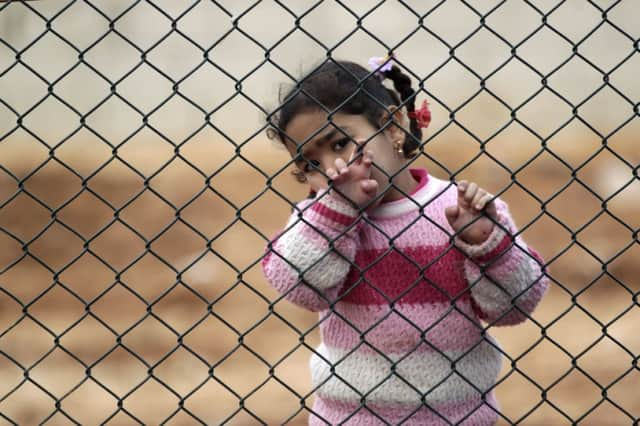Why 30,000 Syrian children face being ‘ghosts’


Across the Middle East, more than 3.3 million Syrians have found safe haven from the civil war in their homeland.
Stateless people face a life without a nationality, citizenship and basic documents to establish their identity and to gain the rights accorded everyone else. Without a birth certificate or other documents, basics, such as getting married, going to school or finding a job, can be next to impossible.
Advertisement
Hide AdAdvertisement
Hide Ad“If you can’t prove your nationality, it means you can’t get legal documentation, can’t cross borders legally, can’t enjoy any other basic rights citizens of a country are entitled to,” Isabella Castrogiovanni, a senior child protection specialist with Unicef, said. “So the consequences are obviously huge.”
The United Nations launched a major campaign last month to try to end statelessness for an estimated ten million people worldwide within ten years.
Syria’s civil war is one of the hotspots. About 70 per cent of the 42,000 children born to Syrian parents in Lebanon since the uprising against president Bashar al-Assad began in March 2011 remain off the books, says refugee agency UNHCR.
CONNECT WITH THE SCOTSMAN
• Subscribe to our daily newsletter (requires registration) and get the latest news, sport and business headlines delivered to your inbox every morning
That figure relates only to the 1.1 million refugees registered with UNHCR. Lebanese officials say there are a further 500,000 unregistered Syrians in Lebanon. It is not known how many children have been born among them, but whatever the number, they are less likely to register.
The registration process is complicated, with multiple steps that require travel from one government office to another, money for fees and, most importantly, a slew of documents. Without the parents’ marriage licence, for example, a birth cannot be registered. But many Syrians fled at short notice and left legal papers behind, or their papers were destroyed along with their homes.
Outside a natal clinic in a rundown neighbourhood in south Beirut, a mother named Khawla, from Idlib in north-west Syria, cradled her newborn son in her arms as her two-year-old, Mohammed, stamped around.
“It took us eight months to register Mohammed. We’re thinking we may not register him,” she said, nodding at her baby boy, Yousef, asleep in a bundle of clothing. “My husband works from 5am to 10pm every day in a grocer’s, so doesn’t have time to go through the whole process. We’re waiting for a miracle to register Yousef.”
Advertisement
Hide AdAdvertisement
Hide AdFor another young mother, Zeinab, the barrier to registering was the paperwork required by Lebanese authorities.
“I want to register my two youngest,” she said. “The problem is they asked for documents from Syria, but we can’t go back.”
In Lebanon, new parents must get a birth notification from a registered doctor or midwife. They then must take this, along with their own identity cards, to the local mayor to get a birth certificate, for a small fee. They then have to register the birth with the local government before registering again at the provincial personal status department, again paying fees.
If refugees marry in Lebanon without registering, they can’t register a birth. If they give birth without a registered midwife or doctor, they also hit a dead-end.
UN officials say progress has been made in the past six months to raise awareness in Lebanon.
“If you think in terms of the hope for these children to go back to Syria one day, if and when conditions allow, not having any legal document will make them like ghosts going back to their country,” Unicef’s Ms Castrogiovanni said.
SCOTSMAN TABLET AND IPHONE APPS